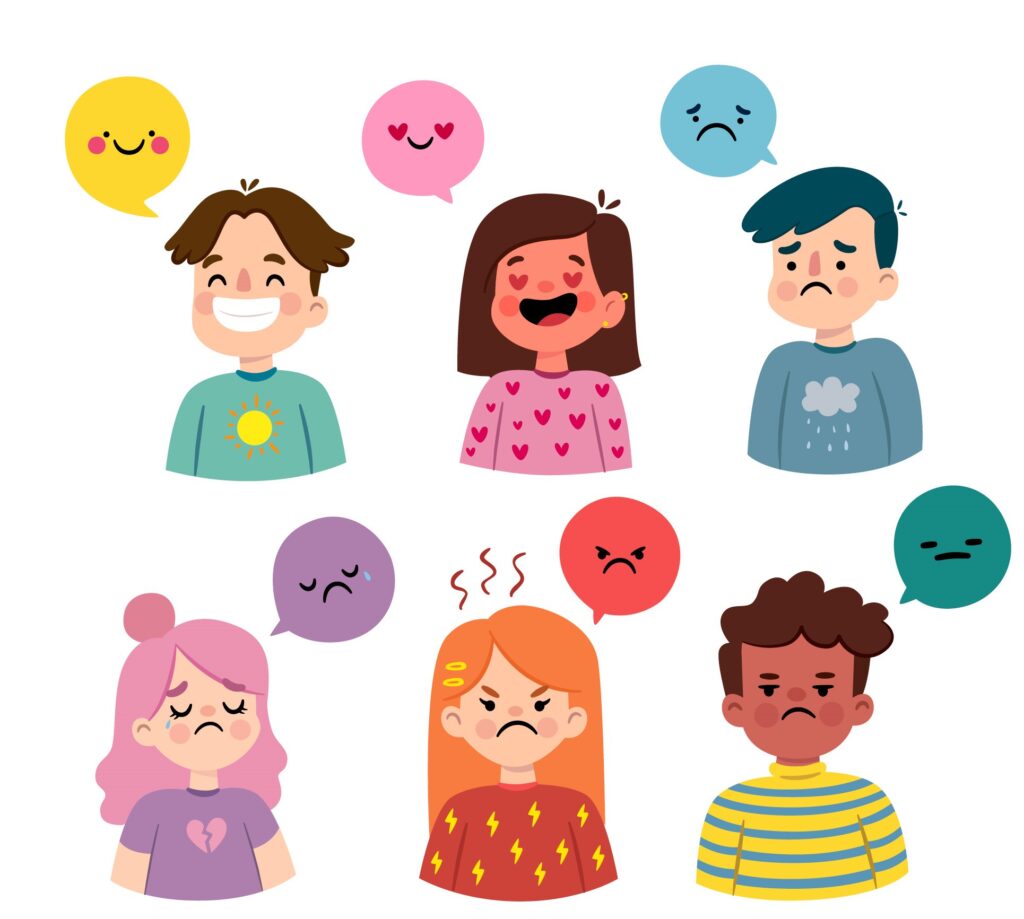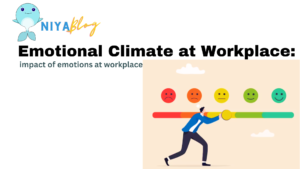
Emotions are a critical factor in determining employee behaviour, performance, and overall organisational outcomes in today’s dynamic and interconnected workplaces. The workplace is fundamentally affected by emotions, which have an impact on both individual and group behaviour, decision-making, and overall organisational outcomes. Stress, anger, or other negative emotions can impair a person’s ability to function at work and interact with others. Positive or negative emotional experiences have a big impact on how people interact, make decisions, and contribute to their workplace.
Examples of positive emotions in the workplace include camaraderie, engagement, belonging, pride and confidence.
Examples of negative emotions in the workplace include burnout, stress, anxiety, isolation and jealousy.
Joy and hope are examples of pleasant emotions that can boost our performance and facilitate the development of positive working relationships.
Wrath and anxiety, on the other hand, can cause conflict and make it hard to concentrate on the task at hand.

The emotional culture in a workplace can help with predicting workplace outcomes. Success in the workplace is significantly influenced by Emotional Intelligence (EQ), which is the capacity to notice, comprehend, manage, and express emotions in an effective manner. Self-awareness and being able to control emotions also contribute to EQ. EQ involves comprehending and controlling feelings, as opposed to conventional intelligence, which is centered on cognitive abilities. Those with high emotional intelligence are better able to handle difficult situations, settle arguments, and keep a cheerful attitude. These people are more likely to listen intently to others, show empathy, and develop trusting connections with others, all of which improve collaboration and teamwork inside the workplace.
Emotional Climate and Job Satisfaction
The relationship between emotional health and job satisfaction is strong because happy workers are more likely to be engaged, driven, and dedicated to their jobs. Negative feelings, like tension, annoyance, or burnout, on the other hand, can impair performance, cause absenteeism, and reduce overall job satisfaction. Workplace productivity, retention, and employee happiness are generally greater in companies that place a high priority on employee well-being by promoting a positive emotional climate through supportive leadership, work-life balance, and stress management measures.
Emotional Climate and Decision Making
Emotions have a big impact on how decisions are made at work. People who are feeling strong emotions like fear or anger are more likely to act impulsively or make erroneous decisions. On the other hand, pleasant feelings like joy or zeal can boost imagination, expand the mind, and provide more creative ideas. Understanding how emotions affect decision-making enables organizations to put into practice tactics that promote rationality, such as providing space for contemplation, fostering a diversity of viewpoints, and using frameworks for decision-making that strike a balance between logic and intuition.
Emotional Climate and Team Relationships
In determining team relationships and overall performance, emotions are crucial. People are more willing to cooperate, share knowledge, and support one another when they feel good emotions like trust, camaraderie, and belonging inside their teams. On the other hand, unfavorable feelings like jealousy, resentment, or mistrust can obstruct communication, teamwork, and collaboration. Teams that perform well can be developed in workplaces that promote a psychologically safe environment, value honest and open communication, and offer team-building chances.
Emotional Climate and Organizational Culture
Emotions significantly influence how an organization’s culture as a whole is shaped. Employees are affected by the emotional outpourings of leaders and how they handle their emotions at work. Employee morale, motivation, and dedication to the organization’s goals are influenced by a leader’s capacity to show empathy, offer praise and support, and skillfully handle emotional responses. Positive emotional environments characterized by respect, trust, and psychological safety foster creativity, risk-taking, and adaptation, which helps the organization as a whole.

Emotional Climate and Managers
We work hard to control our emotions at work, which is referred to as emotional labor. This might involve either constructive emotional labor such as making an effort to be upbeat in the midst of hardship, or destructive emotional labor such as putting on a brave face when you’re feeling overwhelmed. In recent years, the concept of emotional contagion in the workplace has drawn more and more attention. The transmission of emotions from one person to another is known as emotional contagion, and it has been shown to significantly affect morale and productivity at work. Employees can experience pressure to put on a smiling front even while they are under stress, a practice known as “surface acting”. It is crucial to be aware of all these as emotions play an important role in motivation as well.
Managers are crucial in determining the emotional climate of the office. Employees frequently seek their supervisors for guidance on how to respond to and handle challenging circumstances. As a result, it is critical for managers to understand the emotional labor that their staff members go through. By being aware of the emotional climate at work, managers can contribute to reducing the emotional burden. They can make it possible for employees to candidly communicate their emotional experiences and offer assistance when required. Organizations may nurture a pleasant emotional environment, improve employee wellbeing, encourage cooperation and innovation, and develop a strong organizational culture by recognizing and understanding the impact of emotions on the workplace. Organizations can leverage the power of emotions to generate productivity, engagement, and success in the constantly changing workplace by encouraging emotional intelligence, prioritizing employee well-being, and cultivating positive team dynamics.
References
https://knowledge.wharton.upenn.edu/podcast/knowledge-at-wharton-podcast/managing-emotions-inthe-workplace-do-positive-and-negative-attitudes-drive-performance/
https://www.forbes.com/sites/forbeshumanresourcescouncil/2020/05/06/bringing-emotions-into-the-workplace/?sh=3fa63a1c162d
https://en.wikipedia.org/wiki/Emotions_in_the_workplace








2 comments
Good one ☝️
Thanks Damodar Sahu!
Comments are closed.